Millennial bloggers seem to be dominating the digital hemisphere. This generation generally includes those who were born between 1977 and 1995; they currently make up the largest segment of the global population. As a matter of fact; blogging as a career for millennials seems quite viable considering some distinct characteristics this generation possesses that make them different from other generations.
Blogging is a multi-billion dollar industry that is growing. In this article, I will explain what blogging is, its potential, basics, and benefits. Above all, I will point out five things about millennials that make them great bloggers.
First, let’s start with a refresher.
What does blog stand for?
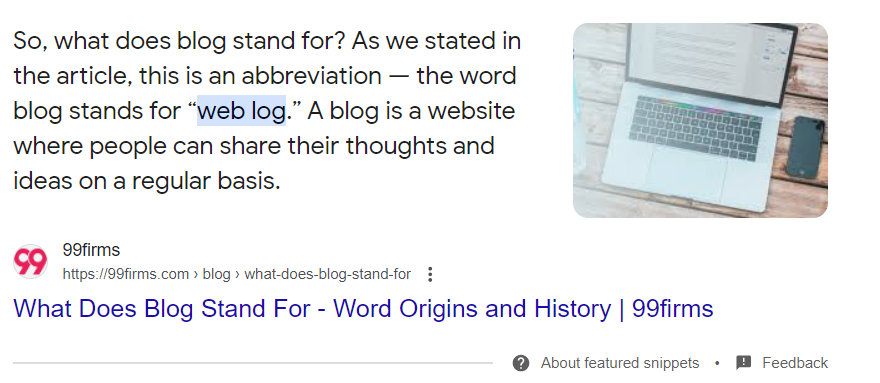
Blog Posts or a Web Log is an informational website consisting of discrete, often informal diary-style text entries or posts published on the World Wide Web.
Typically, on a blog site posts show in reverse chronological order, with the most recent ones appearing first and at the top of the web page.
Blogging And Its Meaning
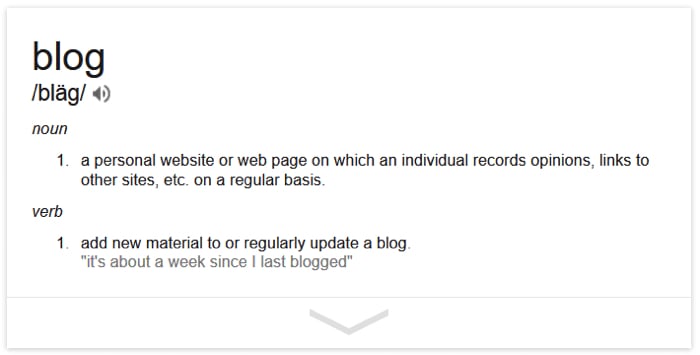
Blogging is the self-publication of writing, photography, and various other forms of media found all over the internet. It initially started as a process for posting diary-style entries, and later it got subsequently integrated into the websites of many businesses.
Some characteristics of a blog site include recurrent updates with fresh content, non-formal language, and excellent opportunities for readers to join in or create conversations.
Since blogs, in most cases, allowed users to leave comments and have discussions, with time, communities sprang up around successful blogs as they became more popular.
Are All Blogs Same?
No! Depending on the niche and author, every blog is different. Some are niche or industry-based, while the general ones offer a wide variety of information using various types of content.
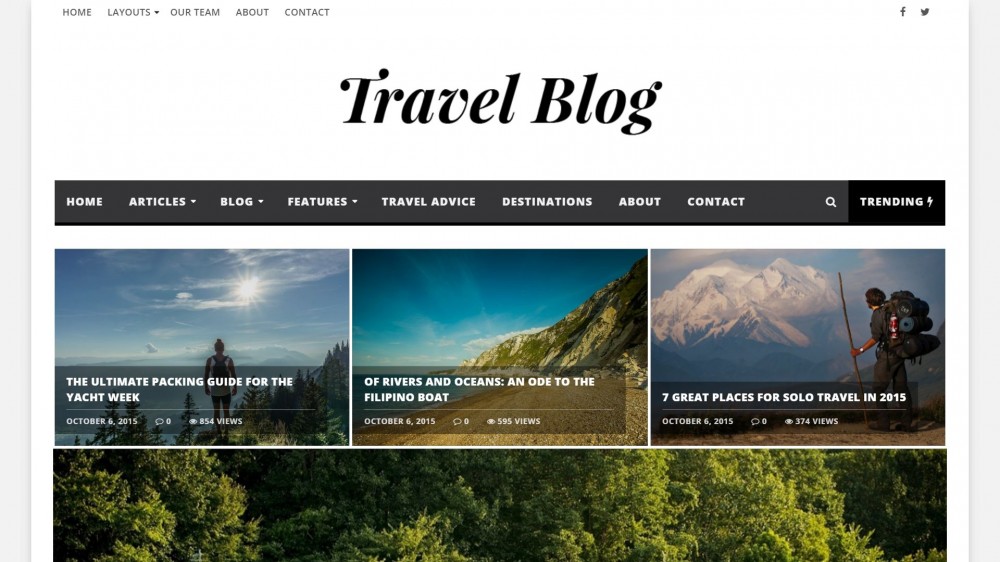
For example, some blogs, such as a Travel blog, may have a lot of images as content, such as amazing breathtaking photographs, with just a very few lines of text here and there. At the same time, a political blog may contain lengthy text-based analyses of current events with very few pictures.
V-Logs or Video Blogging
On January 2nd, 2000, a blogger named Adam Kontras added a video of him sneaking a cat into a hotel room to his text blog to share with his friends and family. Then later the same year, in November, a professor named Adrian Miles posted one of the first few video blogs and termed it a ‘vog.’
By now, blogging had started impacting many lives, and blogs started getting monetized because people and businesses started taking this new phenomenon seriously.
Then, in 2005 YouTube was launched, and after its success, Video Blogging or Vlogging began to see its constant rise.
(For More Read: The History of Blogging)
Blogging Potential
If you look at the numbers below you would know that the future of blogging seems very bright.
There are over 600 million active blogs out there today, with some earning millions of dollars in revenue.
With this blogosphere growth, many businesses have realized the marketing potential and possibilities of a blog. And their investments in blogs have made blogging a business rather than just a way to market one.
Recently, in 2021 the global content marketing industry stood at approximately 400 Billion Dollars which is expected to rise by another $269 billion by 2024, taking the industry’s total worth above $600 Billion.
Blogging Basics
Creating a website and publishing original content on it is what it takes to start blogging.
It is comparatively easier for tech-savvy bloggers to buy a domain name and then, in most cases, develop their websites themselves. Those who are not tech-savvy and dont know HTML (such as me) do it using platforms like WordPress, which makes the online creation and publishing process easier.
Most blogs are simple websites with older posts placed in categories, whereas the fresh or latest ones are displayed at the front of the main page. Plus, many blog sites have separate pages showing contact and other information such as bio.
Private Blogs: They are usually run and managed by a single person who, in most cases, is the author of all the content that the blog site shows.
Corporate Blogs: Companies or organizations that run successful blogs usually hire a staff to work as their content team or they purchase content from freelance and other writers.
Blog Hyperlinks
Hyperlinks are another distinguishing element of blogging. They happen when a blogger includes a link to another page from their own or some other website in their post.
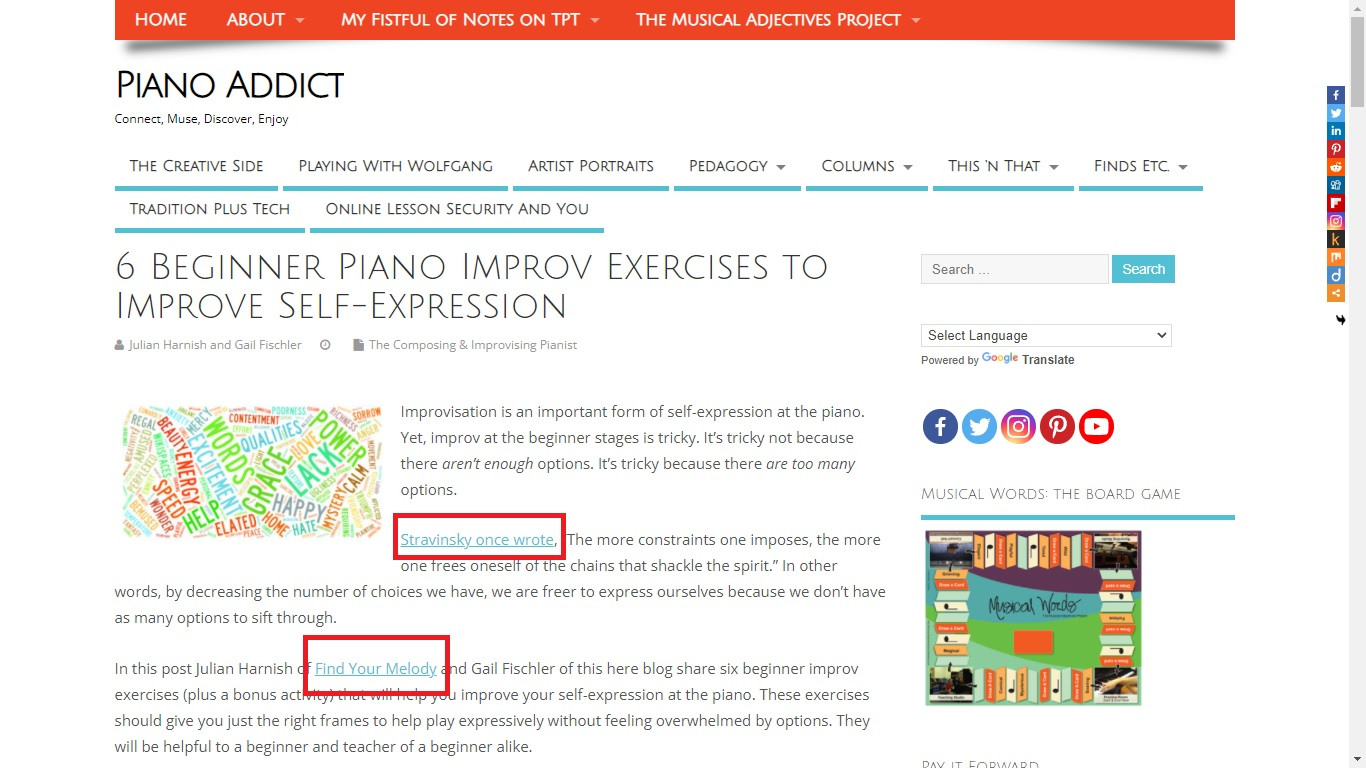
For example, in the image above you can see a blog post on a music teacher’s website; which contains two hyperlinks inserted within text showing in ‘blue’ color.

In the first hyperlink, the author has given reference to what someone has quoted; and has inserted the link to that person’s website where he has quoted it as reference or proof that the author is not making anything up by himself.

The second hyperlink inserted where it says ‘Find Your Melody’ is of a website that is known by the same name and is run by Julian Harnish. Julian has teamed up with Gail Fischler (who is the owner of this website), the post author, introduces himself as the post’s co-author, and inserts Julian’s website link within the post text.
Similarly, a political blogger might provide a link to another political blog and then explain why they agree or disagree with one of the mentions on that site.
These links help provide some complementary or more related information to the readers for a more in-depth experience, with additional layers of references and meaning.
Traditional Websites vs. Blogs

Many people are not yet sure about what separates a blog from a website.
\”The only real difference between a blog and other types of website is that blogs are updated on a regular basis with new content, which is displayed in reverse chronological order (new blog posts show first). Typical websites are static in nature where content is organized in pages, and they are not updated frequently.\” – WP Beginner
Blogs Offer More Content | Website vs. Blog
Blogs are also websites but with a few different characteristics. A blog covers a wide range of informative and educational articles and topics for readers in its niche. In comparison, traditional websites are generally owned and run by businesses and provide basic information about their products and services.
They Are More Personal | Website vs. Blog
Blogs have a more personal and informal tone and feel to them. And for that reason, they are more engaging compared to regular, formal, and professional websites.
Gets Regularly Updated | Website vs. Blog
They are often updated as new content is published several times a month. Such as a Mommy Blog where a mother shares her parenting experience, stories, and lessons. Or a food blog where a chef or food lover shares their food stories and experiences or various new recipes.
In contrast, traditional websites would only update when a new product probably requires a page or a change of address and contact information.
Encourages Engagement | Website vs. Blog
Unlike traditional websites that have a contact form mainly on the ‘Contact Us’ page, blogs allow an option for its readers to comment on a blog post and have conversations to discuss the subject more in detail. Also, blogs offer have social share options that a reader can use to share the blog post with friends or family on social media.
Blogging Pros & Cons
Pros
- Great for SEO
- Helps in building, maintaining & enhancing communication with customers and prospects.
- Works to strengthen customer relations.
- Creates multiple earning opportunities
Very Effective for SEO | Blogging Pros
Blogging is an excellent search engine optimization (SEO) strategy; the reason being that search engines appreciate it when a website posts fresh information; that readers love.
The frequency at which a blog post is updated also impacts its SERPs ranking. Regularly refreshing and updating your content would allow Google bots to crawl it more often; resulting in a reestablished web page’s SERP ranking.
Secondly, Blogs allow the insertion of multiple high-ranking keywords on the blog site divided and spread over hundreds of blog posts that the bots detect; then they reward the site by boosting its SEO.

Third, blogs give the opportunity to create well-researched long-form articles that eventually earn the website multiple unique backlinks; which are the third most crucial factor for Google search engine ranking.
Builds & Enhances Communication | Blogging Pros
Good blog sites aim to develop a relationship of trust with their readers by keeping them updated with the latest and most authentic information within their niche. It could be about new technological advancements, the launch of new products or services, discount deals, product reviews & insights, and more. The more you connect with your audience, the better outcome and more customer loyalty you can expect to get.
Strengthens Customer Relations | Blogging Pros
Since blogs are a two-way communication channel, you can expect your readers to leave comments and their views on things; which may differ from yours. It, in turn, is an opportunity that allows bloggers to demonstrate what they know and prove their expertise to reinforce and reestablish their trustworthiness.
And as long as your readers trust you, there is a much better chance of them buying from you.
Creates Multiple Earning Opportunities | Blogging Pros
“Never depend on single income. Make investment to create a second source.” – Warren Buffet
This investment could be of the time and effort required to create quality content. For sure, there are several ways to earn from a blog site; even ways to start earning from day one; provided that you do it right. And doing it right would require you to first have a plan in hand along with its execution strategy.
You can sell your own products and services, plus, you can also earn through Ads & affiliate programs; as well as by selling physical or digital products, like online coaching, video courses, PLR products, etc.
Successful blogs give owners a lot of flexibility and revenue opportunities, and these features make blogging an excellent choice for those who are wishing to be [lifestyle entrepreneurs.]
Cons
- It takes time to establish and make money.
- Continuously requires lots of fresh and new ideas.
Takes Time To Establish | Blogging Cons
It takes considerable time and effort before bloggers start to see readers returning and their revenue graph going up. Creating blog posts that boost traffic, conversions and revenue take a lot of effort and time for research and then to execute; no doubt that they are worth the hard work we put into them.
Blogging success majorly depends on traffic and, more importantly, on people returning to your site. For which, you need quality content that outshines all content that your competitors offer. And to come up with such content, you need to give attention to detail to each blog or piece of content that you produce and publish.
Moreover, your content creation needs to happen regularly; at least once a week you must post something new and valuable for your audience to consume.
If you are able to execute it right then perhaps from day one you could be earning just a few dollars or cents. But to see an actual or full-time income to support yourself and your family, you may have to work hard for six months to a year before you can start earning that kind of ROI.
How to counter it?
Blog about what you love as you have to be passionate about your niche; if you really want to see success in being a blogger. Your goal should be community building; in the real world as well as on social media. You need to put in a good effort to find inspirations and build relations with other bloggers, professionals, and even users from your niche.
Requires Fresh Ideas Constantly | Blogging Cons
You need fresh and exciting content to fetch results otherwise even posting several times a week will not do any good. And thinking up new ideas to create unique content regularly while following a strict routine can get very frustrating and can leave a blogger brain dead, exhausted or burned out.
How to counter it?
The good news is that you do not need to handle everything on your own. You can engage guest writers or hire freelancers even; to blog for you to keep your ball rolling.
Secondly, by joining and building communities with fellow bloggers, niche experts, and users, we should be able to find several inspirations for topics regularly. All we must do is keep our eyes and ears open to things; to observe what people are discussing, questioning, or having concerns about.
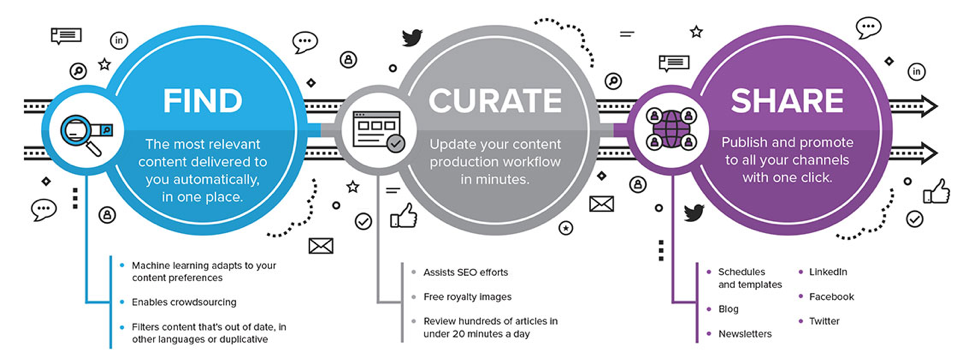
Then, we can always curate content to save time and counter this challenge of regular content creation. Curating content is more about sharing content that other people have created; with some value-added from your end also. That value could be as little as a few lines to a couple of paragraphs.
Having an eye for top quality content has its value also; you can use specific tools for content curation and keep providing your readers top quality content using very little effort; as compared to creating new content from scratch.
Besides content curation can be a lifesaver especially when there is a shortage of time to create our own content.
Blog Requirements
Starting a blog from scratch or adding a blog section to an existing website is neither difficult nor expensive. But it is important to remember that blogging started as a hobby, and the early bloggers did it for fun or to help and to guide others.
Your chances of success improve quite a lot if you are passionate about what you do and want to help people by showing them through things that you know but they don’t.
Furthermore, if you just put in the time and effort to plan it right and follow your plan with consistency, then you should be able to pull it off well.
Here are some steps that would help you aim for success.
Step 1. Finalize Niche & Create a Blog Site
There are factors to consider and ways to find the best niche for your blog. However, your best niche would be perfectly balanced between three things: Passion, experience, and profitability!
Even if it misses just one element out of these three you will not be able to continue with it for too long.
Moreover, there are many profitable niches to choose from.
The list above mentions around 100 plus niches whereas they are in thousands.
After finalizing the blog niche the next step is to work on creating a website to publish the content being planned and created.
Start for free by using a top CMS (content management system), which are centralized platforms that allow its users to create, edit, and manage all their content; that can include blog posts, e-mails, landing pages, etc.

2) For people who are sure already that they want to do it and just want to start properly; can buy hosting from Blue Host for $2.95/month.
This hosting offers some free features; including a free domain registration for one year which makes this offer a very good deal.
Start using the CMS to create and manage content after buying the domain and getting your website ready.
Step 2. Create & Post Content
As mentioned before, creating and publishing good content regularly on your website will eventually do you a lot of good. Here are some tips for creating and posting content that you may find useful.
Post Regularly: You will need to follow a schedule and post content regularly without fail. You can do this every day or multiple times in a day or once a week.
The best is to plan for once a week when you start.
Create Original or Value-Added Content: Either create 100% original content based on your experience and research, plus topped with valuable insight. It is even better if you mention your experience and sources from where you got your information. This practice is good because it lets your readers know that the information you are giving is valuable, and you are trying to be someone who knows it all. It will authenticate you in front of your readers.
Curate Content: Curating content is easier than creating content. It is more about identifying great content from different sources and then joining their various bits to create a fresh piece with some value and lines added by you. There are tools and tricks that you can check out to make content curation easy and fun.
The Right Way or The Highway
Posting content regularly while following a content calendar schedule is very important. Let me list down two ways that you can start.
The Conventional Way: You start writing blog posts and publishing them as required by your content calendar.
The Right Way: After doing all my research, I have understood a few things that work and those that don’t. There are multiple ways to make money blogging plus real examples of how some people managed to maximize traffic, conversions, and revenue successfully.
No matter how great your content is, it is useless and just content if it does not eventually convert into revenue. And to ensure it converts into revenue, there is a formula that I have worked out.
Create just enough content to get qualified for Google Adsense. You can check my blogs [‘HOW TO MAKE MONEY BLOGGING? 10 Proven Ways TO Earn From Day One!‘] to better understand what Adsense is and why it is important. Plus, the article will tell you different ways to monetize your blog.
Content You Need To Succeed
You need to create around 40 to 45 articles with great headlines to maximize traffic.
Next, you need to give time and develop compelling CTAs and lead magnets to convert the traffic you are getting into leads.
Then, it would be best if you had content and tools for your email marketing campaigns to convert all those leads into revenue finally.
40 to 45 Articles: They should be enough to let Google bots know what your website and content are about. It would be best if you had great articles with two different word counts for two main reasons.
1000 to 2000 word articles (mostly list-based) get more shares, leading to more traffic to your website, which is most essential for revenue.
3000 to 10000-word articles (mostly tutorials or comprehensive guides) will get you backlinks, which are the best boosters of SEO.
The best ratio is either 20:20 or 25:15 with 25 articles of 1000 to 2000 words and 15 pieces of 3000 to 10000 words.
To do it properly and fetch results from day one or any results at all, you must do it right. And by doing it right, I mean that you align all your goals in regards to a) driving traffic to your website, b) converting that traffic into leads and c) turning those leads into revenue into a straight line and then heading in that direction.
It will take planning and effort with considerable time and schedule following a content calendar religiously, but at least you will know that you are doing it right.
Step 3. Market Your Content & Blog Site
Like all other businesses, you need to market this business as well. I mean that you need to work out ways to bring traffic to your blog site.
The three best and most popular ways to do it include:
1) Social Media
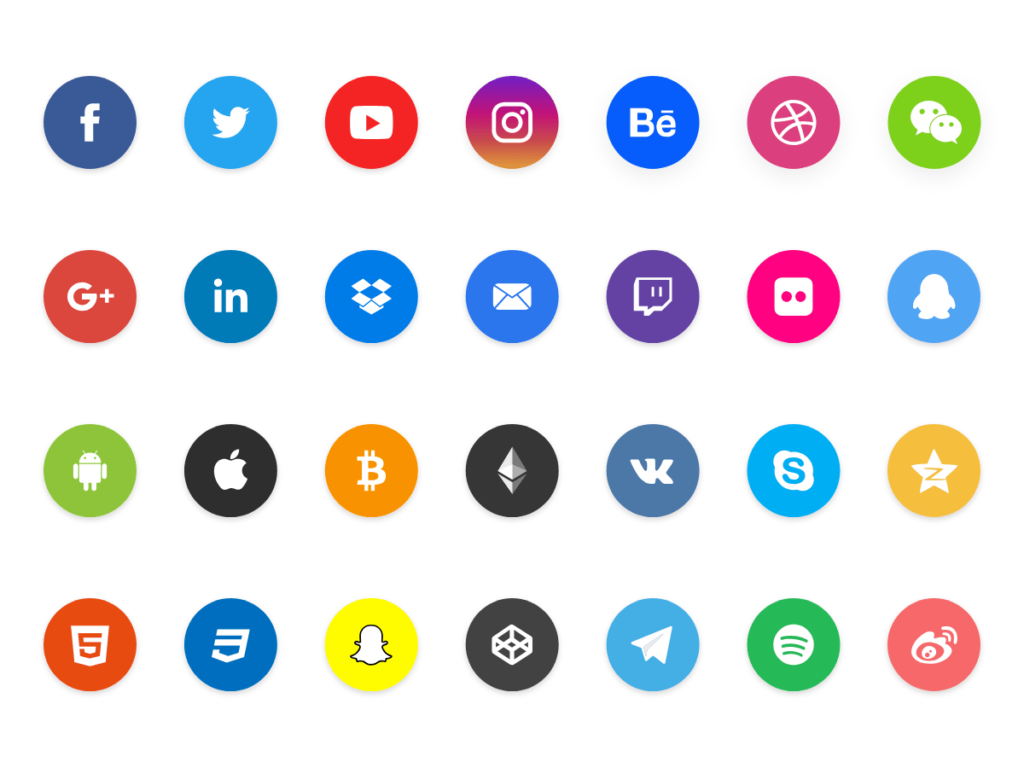
You need to identify each social platform your target audience uses or visits. And then create accounts on those platforms to join their various communities and groups relevant to your niche and audience.
The earlier you do this, the better. My advice is to start simultaneously during step 2 and create all your content to launch. It will give you some good time to get familiar with the platforms, how they all work, and how people interact with each other.
This familiarity over time will help you get better results from your efforts when you start marketing your blog to bring more and more traffic to your site. And your success majorly depends on getting your message in front of your target audience.
2) Email Marketing
If you have good CTAs and Lead Magnets within your blog content, you are bound to get leads and your reader’s email addresses and to get some good out of those addresses, you must have good email marketing efforts in place. These efforts will include building and developing communication with your subscriber from the moment he subscribes by sending him welcoming emails and then an email about each blog you publish with a link to it. It will work as a reminder and notification to your subscriber to return to your website for more quality insight and industry/niche information.
3) Search Engine Optimization
For this part, you will need to use some free SEO tools to drive traffic, clicks, and sales. These tools will help you do:
Analytics: You need to perform analytics to know all the actionable and critical data/information about your blog site visitors, traffic, backlinks, etc.
Insights: Valuable information that SEOs and marketers regularly need to keep up with their growth strategy and win the game of SEO. The secret to successful SEO majorly depends on regular insights and knowing how you and your competitors are progressing/doing and what adjustments you should make in your strategy to benefit from any market gaps.
Keyword Research: After searching for your primary keyword, you can discover other related keywords to insert in your posts or know what you require to rank high for a certain keyword.
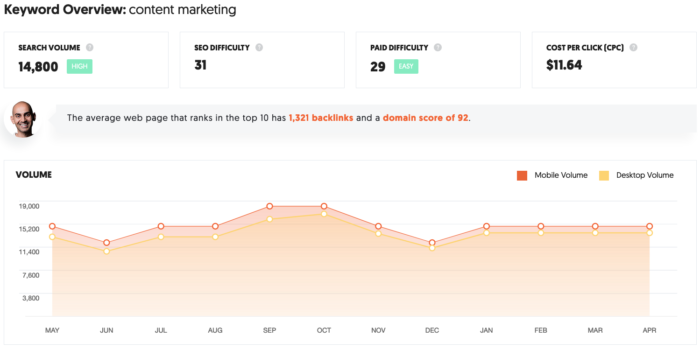
You can use this data to create posts that are multiple times better than your competitors.
There are other excellent strategies also to reach your target demographic; such as reaching out to other bloggers, podcasters, and media sources for PR. Plus you can repurpose your blog content to promote your brand across various channels, platforms, and mediums.
Step 4. Add Revenue Streams
Again I would reference my other article about 10 different ways to make money blogging. If you are following my instructions, you will make sure that you prepare so that at least you will get your AdSense activated and have your Amazon Affiliate links in place when you launch your site and go live.
$$$ – The Greatest Motivation!
Other things you MUST Do to Maximize Earnings:-
Digital Products: Create and sell eBooks, Templates, White Papers, Research & Stats, Music, Video Clips, Photographs, etc.
Printable Resources: These too are digital products that people buy for physical use.
Planners, Wall Art, Journal Pages, Stickers, Invitations, Stationary, Here are 31 ideas for printables that you sell from your website as well as from Etsy.
Courses & Coaching: You can teach your readers anything you know better than them within your niche and area of expertise.
Whether formal, professional, or personal life coaching or teaching your audience how to bake a cake or telling them how to train their puppy, you can provide all kinds of coaching and training sessions worldwide through downloadable videos or by being present virtually.
Consultation Services: You can sell online or in-person consultation and other services, depending on your niche.
Physical Products: You can promote and sell souvenirs and a range of different products from your blog site.
After receiving payment, you can ship the items to them using a reliable courier service.
The point is that you can monetize your blog in several creative ways. If you want to check out more options, then I recommend you read the following blogs.
[HOW TO MAKE MONEY BLOGGING? 10 Proven Ways TO Earn From Day One!]
[How to create blog posts that maximize traffic, conversions, and revenue?]
Blogging as a Career for Millennials: 3 Things That Make This Generation Great Bloggers

\”Millennials are often referred to as the connected generation. It is the first generation that has grown up on their devices and the Internet.\” – Forbes
That and some other factors identify this one-of-a-kind generation really well. According to research, those 5 attributes are:
Factors That Make Millennial Bloggers Rock!
1. Love To Gain And Share Information
They read blogs and consume knowledge to educate themselves, feel pleasure, and get inspired.
63% of them in the United States are graduates or are in the process of becoming one. Which means they have a wealth of knowledge to share through their blogs.
Considering that 34% of bloggers have been blogging for less than a year, there is a minimal barrier to entry and growing an audience. Hence, if they can create some valuable and quality content and do their basic SEO, then keeping the 80% market share of Google in mind, they can start getting some constant traffic to their blog.
2. Desperately Feel The Need To Express Themselves
Most millennials (may not know this yet, but they) desperately need to start blogging, especially if they have not been able to create or exist in the ideal work environment yet and still feel passionate about a certain field.
If you are a millennial reading this, then blogging will help you (like it will help everyone else) in two ways. One, writing blogs will involve a lot of research, and that would help you learn more and stay updated about things happening in your field.
Second, blogging is a great way to put your thoughts, concerns, and proposed solutions in writing and get them across to the industry leaders or consumers for support or action.
Blogging is a great way to demonstrate your everlasting passion to like-minded people, potential employers, clients, or anyone new in your field who may want to learn from you.
3. Want To Free Themselves From The 9to5 Routine
Many millennials have years of experience and are earning great salaries. But still, they are looking to free themselves from the 9to5 routine while earning a full-time income. Starting a blog is a great way to make money while being independent.
It can help make dreams a reality. Share or sell your years of knowledge and experience with industry leaders, colleagues, and newbies.
If you are a woman, housewife, and mother, Mommy blogs may be the perfect option.
‘Mommy blogs’ were initiated by intelligent and educated ladies who had become mothers. Wanting to give their family and kids time, they had quit their jobs and decided to try blogging for income.
And the blog did wonders by becoming the outlet for them to share their everyday experiences with their followers and earn a small and then full-time income as they got more into the game.
Many ladies took a year or two to grow their fan base. But once they had won their loyal and dedicated readers and fans, they started earning from their blogs.
Many of them were even able to start other businesses or even launch a product line that became successful thanks to their already established fans and customer base.
Some top and most popular mother bloggers earned as much as $20,000 per month from their blogs.
4. Realize The eCommerce Potential
I think content marketing is the best way to market, was the best way to market, and will remain the best way to market; till people do not give up reading and learning, which I hope will never happen.
A lot of millennials probably feel that way. And probably that is the reason many of them are blogging already.
People from third-world countries probably seem more interested because they lack opportunities or the resources to start some other small business. Such countries, in most cases, do not even have decent technological infrastructure, but that does not stop them from blogging; in fact, many of them use their blogs as entry points to becoming entrepreneurs.
The point is that you may not have the funds to set up a regular business and then push it constantly to grow. But what you may have is the will to build a worldwide audience that you can earn from by monetizing your blogs through advertisements, selling your products & services, or both. All credit goes to the constant increase in the number of digital buyers during the last 7 years, from 2014 till 2021.
5. Wish To Expand Their Reach
The world is a global village now, and I know you have heard this term many times before.
It is true because this age and current scenarios have taught us how to use the internet to grow our digital outreach and connect with more people.
It has allowed millennials and other bloggers to either find and join or even create global communities on topics they feel most passionate about and close to their international audiences’ hearts.
A blog can be on any topic, ranging from Student Loan Debt, Neighbourhood Gentrification, Green Living, Alternative Investment Opportunities, Entrepreneurship, Personal Growth, Spirituality, etc.
The real purpose is to meet community desires for forming connections, sharing information, and providing solutions. As a blogger, if you can tap into a large demographic-specific need and build a community, you can gain access to many other relevant opportunities.
Career Blogs for Millenials
Please take a look at some of my favourite Millennial blogs from thousands of blogs on the web, ranked by traffic, social media followers, domain authority, and freshness. That will help you advance in your career and grow your business.
Chasing our Financial Freedom
FlexMyFinances is a career blog dedicated to assisting millennials in achieving financial independence through either landing their dream career on their own terms or starting a side hustle like a money-making blog.
The purpose of Chasing our Financial Freedom is to modify the mindsets of both job seekers and employers by showing the value and importance of employees in a business. Career-related advice can be found on Chasing our Financial Freedom, including how to write a resume and conduct a job search as well as job interviews and interview questions and many more other things.
The Muse
The Muse is one of the best career blogs for Millenials, and it serves as a platform for young professionals and millennials to get career advice on everything from how to find a job or a career that brings you joy, job interview preparation, how to find success at work, networking, and much more. It not only offers career advice in its blog section, but it also offers services such as writing a resume, acing a job interview, searching for a job, getting a raise, or changing careers.
It also features a job portal, allowing job seekers to browse and apply for thousands of jobs, with the website being updated daily with the most recent jobs available in the US market.
Career Contessa
Career Contessa is the only career blog explicitly created for women. It offers expert advice on all things career-related, as well as a plethora of freebies for job seekers such as checklists, e-guides, quizzes, and worksheets.
The great thing about Career Contessa is that if you aren’t a big reader, they also have webinars on career development, job search, work-life balance, and a variety of other topics.
Career Contessa, like The Muse, provides career coaching and a job portal.
Watch her work
Denise Hamilton, who has over 25 years of professional experience, founded WatchHerWork. Watch Her Work offers career advice, advice on achieving your goals, side jobs, achieving life results, and even advice on motherhood and health.
Watch Her Work offers resources such as video content, books, and tutoring facilities in addition to the free guidance available on the blog.
The Way Factory
The Way Factory is a career blog that, as the name suggests, aims to help career blogs for millennials to find their way. Find your way to a career that matches your personal goals and aspirations.
The Way Factory is a website that provides valuable information about work, personal growth, and self-employment simply and funnily.
Bottomline
We live in the most unusual times, and you would understand it well if you were a millennial since you have witnessed the world shift and change so much that you are probably ready to expect and accept anything.
It is your mindset that allows you to face and live through even the toughest situations. And not just that, but since you are well aware of the challenges, you can also tell the potential of things better than other generations.
These attributes allow you to be more open to pursuing multiple options and avail any great opportunity hidden inside. And right now, blogging is the option that is becoming increasingly popular every day.
When it comes to making money from your blog, just know that it won’t be easy; however, there is an abundance of possibilities that can make things work for you better than you may know right now.
Get in touch if you have any questions or require any knowledge or need me to help you with anything that I have discussed or shared with you in this blog post. Good luck!


